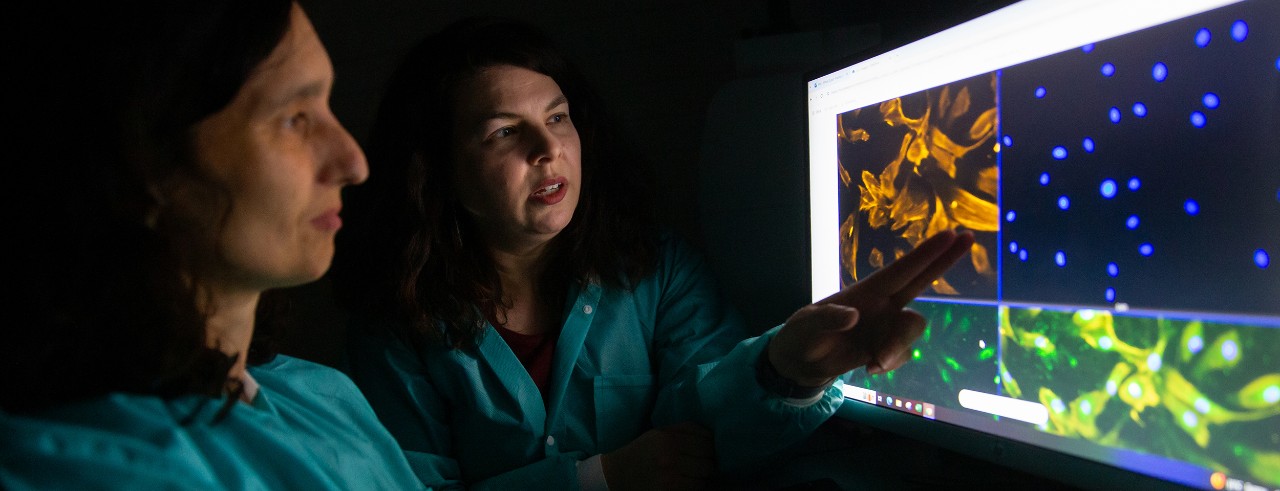
Fertility podcast highlights UC fibroids research
Biomedical engineers are studying how compressive force influences fibroids
A podcast produced by the American Society for Reproductive Medicine highlighted a new study by the University of Cincinnati that examined the way compressive force influences the growth of fibroid cells.
The podcast Fertility and Sterility on the Air discussed a study by UC College of Engineering and Applied Science Assistant Professor Stacey Schutte published in the journal F&S Science.
In her biomedical engineering lab in UC's Bioscience Center, Schutte and her students are examining the ways that cells respond differently to compressive force or strain. And these insights could give hope to millions of women who deal with painful and ubiquitous fibroids.
Co-host Daylon James, MD, highlighted the study.
“This is a mind-boggling stat for me that 70% of women at some point are affected by fibroids by age 50. That's a huge percentage,“ James said. “From a technical standpoint, I thought this was a real state-of-the-art (study).“
Researchers cultured fibroid cells and healthy myometrium cells from five patients. And they simulated compressive force, identifying 61 genes that were expressed differentially.
“It makes me wonder that maybe we've missed the boat on prevention strategies for fibroids,“ James said.
Schutte's co-authors included UC project coordinator Andreja Moset Zupan, UC doctoral grad Carolyn Nietupski and UC College of Medicine researchers Megan Sax, Emily Hurley and Rose Dean.
Listen to the Fertility and Sterility on the Air episode.
Featured image at top: Assistant Professor Stacey Schutte, right, and Research Associate Andreja Moset Zupan are looking for new treatments for fibroids in Schutte's biomedical engineering lab. Photo/Andrew Higley/UC

UC Assistant Professor Stacey Schutte is studying fibroids in her biomedical engineering lab. Photo/Andrew Higley/UC
Related Stories
‘Designer drug’ shows early neuroprotective signal in acute ischemic stroke
October 28, 2025
Medscape highlighted new trial results led by the University of Cincinnati's Eva Mistry that found an experimental drug shows promise in protecting injured brain cells for patients with acute ischemic stroke.
Is menstrual fluid ‘the most overlooked opportunity’ in women’s health?
October 27, 2025
The Guardian recently reported that period blood has long been thought of as ‘stinky and useless’, but startups are exploring using the fluid to test for a wide range of health conditions — including endometriosis.
What is squalane, and how does it work to moisturize skin?
October 27, 2025
The University of Cincinnati's Kelly Dobos was featured in a Women's Health article discussing squalane, an ingredient being increasingly used in moisturizing skincare products.
